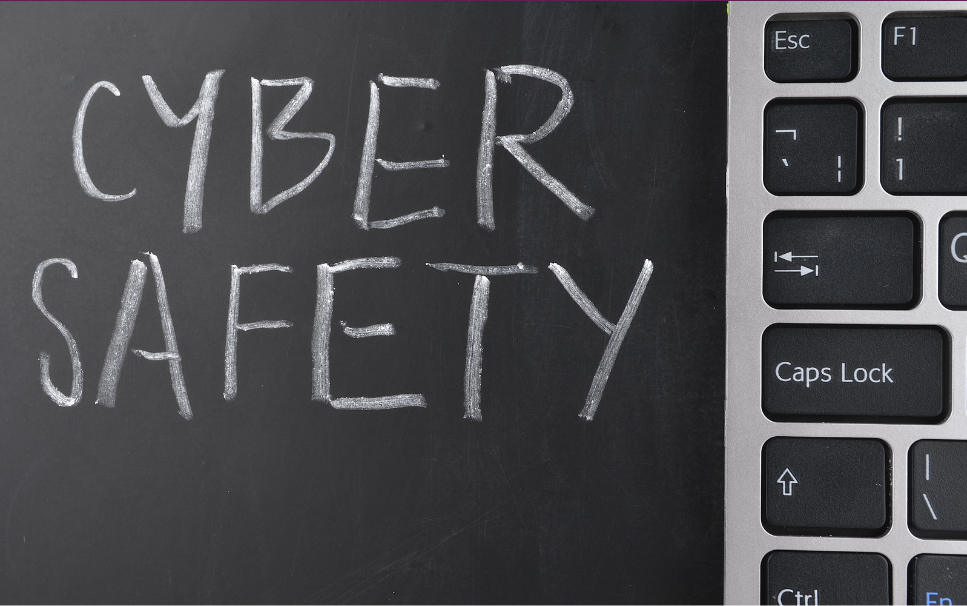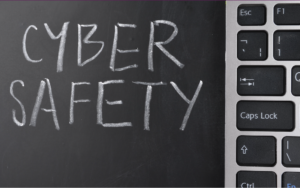How to Implement a Successful Cyber Awareness Program
October 7, 2022
Under Attack? Contact Us

A cyber awareness program is not limited to Cybersecurity Awareness Month, but should be a year-round focus for your company’s cybersecurity strategy.

Jeff Hancock, Stanford University.
According to a study conducted by Stanford University, human error is responsible for 88% of data breaches. It is crucial for organizations to ensure that their employees are well-informed and well-trained in order to secure their systems. The study titled “Psychology of Human Error” highlights that employees are often hesitant to admit their mistakes if they fear severe judgement from their organization.
Understanding the psychology behind human errors is essential for organizations to proactively prevent mistakes from turning into data leaks. The study also reveals that nearly 50% of employees admitted to being “very” or “pretty” certain that they have made errors at work that could potentially lead to security issues for their company. Having well-informed and well-trained employees is the most important thing you can do to secure your organization.
Developing an engaging and effective cyber awareness program that resonates with your employees can be challenging. Here are key considerations:

Cyber awareness program concept with red silhouettes of people standing around the target
To establish an effective cybersecurity awareness program, it is crucial to begin with the fundamentals. This entails educating your employees on the significance of robust passwords, safeguarding data, and practicing safe browsing habits. Equipping them with the necessary resources and tools to defend sensitive information against cybercriminals is paramount. Now let’s explore various types of cyber training that your business should consider.
Conduct this training annually for all employees and within a month of new hires’ start date.
I recommend shorter, more frequent training so that employees can retain the information and are less likely to get distracted. The different formats of these types of training (videos, tutorials, infographics) all have their own merits and should be decided through employee feedback and your own knowledge of your business.
Implement phishing simulations at least quarterly.
The goal is to send out a fake phishing email to employees. If someone clicks on the “malicious” link, it takes them to a page explaining how to spot suspicious emails. If the employee reports the phish, they are told it was a phishing simulation and get a thank you for being alert. It is very important to track the results of these campaigns to see progress over time for individuals and the company as a whole.
By prioritizing an effective cyber awareness program, your company can enhance its cybersecurity strategy and protect sensitive information from potential cyber threats.

Creating a strong cybersecurity awareness culture within your organization is crucial, and there are plenty of engaging cybersecurity strategies to make it happen. Start by seeking input from your employees on their preferred learning methods and the security issues that confuse them the most. This not only shows that you value their opinions, but also ensures that the training is tailored to their needs. To foster a sense of community, include InfoSec topics in town halls and organize events like lunch-and-learns or happy hours. Inject some friendly competition by running contests related to current news or recent training sessions, such as submitting the best sample phishing email. And remember, adding an element of fun through games and giveaways can help make cybersecurity a part of your employees’ daily routines. Let’s strengthen your cybersecurity defenses together!
In the realm of cybersecurity, fostering a collaborative environment between employees and the security team is crucial. By working together, we can effectively safeguard our organization’s digital assets and protect against potential threats. However, it’s important to approach security measures in a manner that encourages open communication and empowers employees to actively participate in maintaining a secure workplace. With this in mind, let’s explore two key considerations: building trust and providing incentives.
Keeping cyber awareness training lessons relevant and relatable is crucial to ensure their effectiveness. One way to achieve this is by providing real-world examples, particularly those that resonate within your specific industry. By showcasing practical scenarios that directly relate to employees’ work, the lessons become more meaningful and memorable. Additionally, fostering discussions about personal data security and encouraging employees to develop good cybersecurity habits at home can greatly benefit the workplace. When individuals are already accustomed to practicing secure habits in their personal lives, it becomes easier for them to maintain those habits in the office environment.
Consistency is the cornerstone of cyber awareness/ Simply discussing cybersecurity best practices once a year in a cyber awareness program is not enough. The ever-evolving cybersecurity landscape demands that we stay updated on the latest developments in online security. It is crucial to ensure that your cybersecurity awareness program evolves and adapts to emerging threats. The most secure organizations I have come across treat security as an integral part of their business, rather than a hindrance.
To enhance the cyber awareness of your employees and your organization as a whole, consider the following:
By fostering a culture of cybersecurity best practices and maintaining consistency, cybersecurity will become a daily habit throughout the year.

Enhance cybersecurity awareness with expert support.
An effective cyber awareness program is critical in your cybersecurity strategy, creating a safe and secure online environment for your business. By starting with the basics, conducting regular training sessions, making it engaging, providing positive reinforcement, and keeping up with the latest developments, businesses can mitigate cybersecurity risks and protect themselves from online security threats like phishing. Remember, cybersecurity is a shared responsibility that requires a proactive approach and commitment from all employees.
Additionally, leveraging cybersecurity-as-a-service (CSaaS) can further strengthen your business’s cybersecurity strategy. By partnering with experts in the field, you can ensure a robust and comprehensive approach to safeguarding your digital assets. Cybersecurity-as-a-service provides specialized knowledge, cutting-edge technologies, and continuous monitoring to detect and respond to emerging threats, allowing you to focus on your core business operations with peace of mind.
If you are in search of a trusted partner to assist with your cyber awareness program or to bolster your cybersecurity strategy, look no further than the Cyber Defense Group. Our dedicated team of cyber experts are at your service, equipped with the knowledge and tools to help secure and protect your digital landscape. Don’t hesitate to reach out to us. Together, let’s build a safer digital future for your business today.
Copyright © 2024 CDG. All Rights Reserved